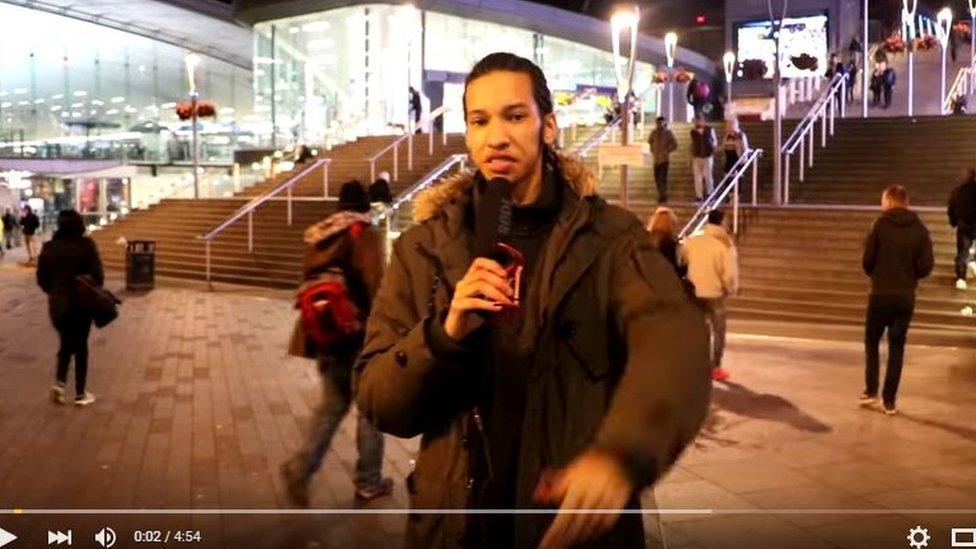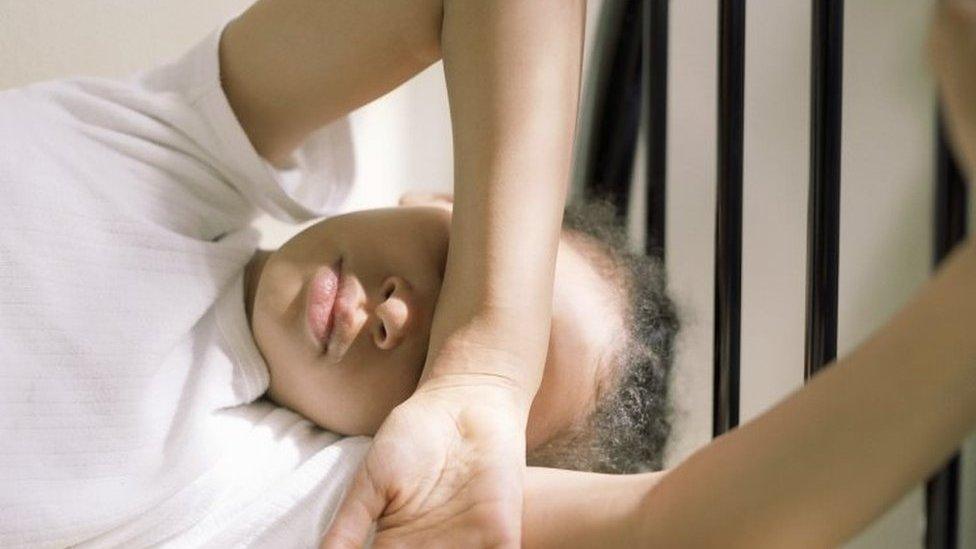Cyberbullying warning from parent after 'baiting out' of teen
- Published
Online abuse - WARNING EXPLICIT LANGUAGE USED
A father from east London has called for head teachers to do more to tackle cyber-bullying on social media after his daughter was "baited out".
The "baiting out" footage, which has attracted thousands of YouTube views, involves youths naming teenagers and accusing them of sexual promiscuity.
The dad said his 14-year-old daughter had been subjected to "cruel" bullying, which had damaged her confidence.
Teachers have reported a 40% rise in cyberbullying in the past five years.
More on this and other news from London
Allan Foulds, president of the Association of School and College Leaders' (ASCL) said cyberbullying was a growing concern for head teachers but schools were already doing "a great deal" to tackle it, by raising awareness of it as part of the syllabus.
He said it was also raised in school assemblies and police visited schools to talk about about the legality, seriousness and consequences of cyberbullying.

Jannes Lenting approaches young people near shopping centres and asks them to identify people they believe are sexually promiscuous
The father, who did not want to be named, said some Year 10 boys were approached by 18-year-old YouTuber Jannes Lenting from Peckham, who was filming near a shopping centre in east London and "incited" them to describe and name girls on camera who they felt were sexually promiscuous.
He said his 14-year-old daughter was unfairly named, without any chance to defend herself.
'More like banter'
He said after reporting the bullying to the school, he tracked down the film-maker and asked him to remove the footage, but the YouTuber refused as it was making him money. Mr Lenting has disputed this version of events.
He also denied that his baiting out videos amounted to bullying.
"Nah, I wouldn't say it was bullying. It's a bit more banter, like. It's not really too serious," he said.


Cyberbullying quick facts
Cyberbullying is when a person uses technology to deliberately upset someone else.
There is no specific law that makes cyberbullying illegal but it can be considered a criminal offence under several different acts including:
Protection from Harassment Act (1997)
Malicious Communications Act (1988)
Communications Act (2003)
Obscene Publications Act (1959)
Computer Misuse Act (1990)
Source: Kent Police

Mr Lenting told BBC News tackling controversial subjects others found degrading made him more successful.
He said: "When you bring in the [derogatory slang for a woman] it brings in a lot more views. It's a bit more controversial, also it's more shareable and people can relate to it a bit more."
YouTube pays some contributors for footage which attracts advertising revenue based on the volume of hits it receives.

Cassidy Valentine says she was the victim of a baiting out video
Fellow YouTuber Cassidy Valentine said she was also the victim of a baiting out video. She said she was identified by a different interviewee because she had appeared in a music video walking through a park and linking arms with a man who was not her boyfriend.
She said: "Is that sexual intercourse? Is that kissing? Is that inappropriate touching? No. I am an actress. This is what I do as a job."
She told BBC News being publicly and wrongly identified as promiscuous was "really embarrassing" and made her feel humiliated.
"To have my name put out there is like I am being laughed at for no reason at all and no-one should have to feel like that," she said.
YouTube said people could ask to have footage of themselves taken down.
The company also said it had policies regarding harassment and cyberbullying, external and would remove inappropriate video from the site.

Bullying advice and help
If you suspect you are being bullied online or by text
Save the messages/material
Report it on online if the site you are using has that function (most do)
Do not retaliate or reply. If possible block the person

- Published5 March 2016
